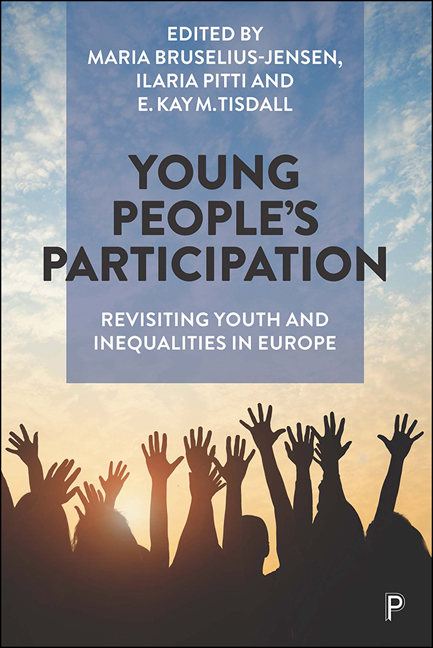Book contents
- Frontmatter
- Contents
- List of figures and tables
- Notes on contributors
- Acknowledgements
- 1 Revisiting young people's participation: an introduction
- PART I Young people's experiences of participation and engagement
- PART II Current state and conditions for young people’s participation: critiques and trends
- PART III Broadening participation: young people's own approaches to participation
- PART IV New opportunities for young people's participation: facilitating new forms of youth participation
- Index
11 - Advocacy and participation: young people with autism spectrum disorder and their experiences with statutory casework
Published online by Cambridge University Press: 18 December 2021
- Frontmatter
- Contents
- List of figures and tables
- Notes on contributors
- Acknowledgements
- 1 Revisiting young people's participation: an introduction
- PART I Young people's experiences of participation and engagement
- PART II Current state and conditions for young people’s participation: critiques and trends
- PART III Broadening participation: young people's own approaches to participation
- PART IV New opportunities for young people's participation: facilitating new forms of youth participation
- Index
Summary
This chapter addresses how a group of young people with autism spectrum disorder (ASD) experience their contact with statutory caseworkers from Danish social services departments, drawing on insights from social phenomenology and focusing on their lived experiences. The point of departure is a study that aimed to investigate how these vulnerable youths viewed the possibility of influencing their life situations. This is ultimately a question of participation: do young people with ASD feel properly understood, included and involved in the decision-making processes regarding important life issues? In this chapter, advocacy is seen as a necessary condition to ensure the participation and the rights of these young people. The chapter shows that violations of their guaranteed participation and rights are quite common, and this calls for stronger advocacy to be exercised by statutory caseworkers, as well as by other types of advocates.
Key findings
• Young people with ASD are particularly vulnerable in their meetings with statutory caseworkers due to their diagnosis-related challenges with communication and social interaction. These challenges are often not recognised or addressed by the statutory caseworkers during the meetings.
• The same diagnosis-related challenges that put these young people in contact with the social services system in the first place also place them at risk in the very system that is supposed to help them, and their problems often intensify, multiply, persist or evolve rather than get resolved. Hence, particular care should be taken to ensure genuine participatory decision-making processes, supported by adequate advocacy, in the work with these young people.
• According to the study, personal advocates of these young people play an important role in the participatory decision-making processes of social services departments. Statutory caseworkers themselves, however, often fail in their role as advocates.
• Several young people participating in the study did not experience genuine participation in the decision-making processes with statutory caseworkers, even with regard to crucial issues in their lives, and violations of their rights were shown to be quite common and widespread.
Introduction
Since the mid-1990s, there has been a significant increase in the number of children and young people diagnosed with ASD worldwide (Timimi and McCabe, 2016). This increase has also been seen in Denmark (National Board of Health, 2014).
- Type
- Chapter
- Information
- Young People’s ParticipationRevisiting Youth and Inequalities in Europe, pp. 175 - 194Publisher: Bristol University PressPrint publication year: 2021



